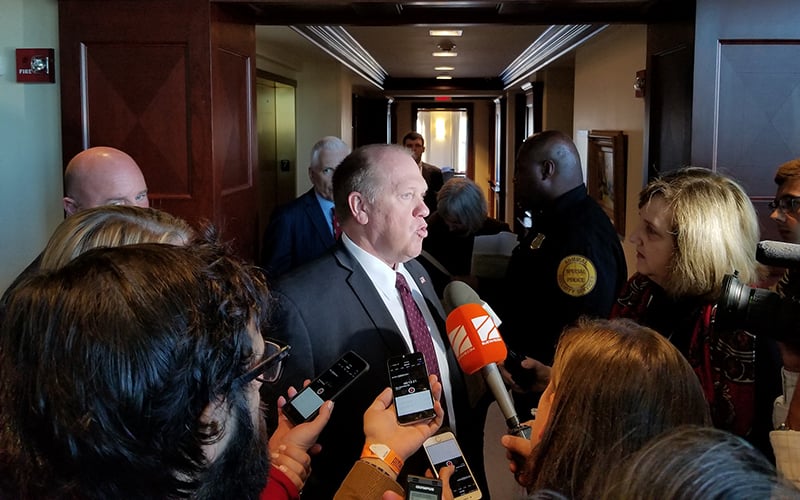WASHINGTON – U.S. Immigration and Customs Enforcement plans to boost its efforts targeting businesses by “four to five times” and will prosecute employers who knowingly hire illegal workers, the acting director of the agency said Tuesday.
Thomas Homan said the goal of the new policy is to cut off the supply of jobs that will keep people coming here illegally “as long as they come and get a job.”
An Arizona Chamber of Commerce spokesman said business leaders are willing to comply with the enforcement program, but cautioned against the administration taking a “hostile” approach with business owners.
Arizona employers are already required to use E-Verify to check a job applicant’s citizenship status, a policy the Homan said he would like to see extended nationwide.
Homan’s comments came during a speech Tuesday at the Heritage Foundation, where he criticized sanctuary cities and defended ICE’s practices of deporting immigrants who are suspected gang members, and arresting them near schools, hospitals, courthouses and other areas that have been off-limits in the past.
Homan stressed that except for immigrants who currently enjoy DACA, or Deferred Action for Childhood Arrivals, protection, “nobody is off the table.” He said he hopes to send a message to those breaking the law that “we’re no longer going to turn our heads, we’re going to enforce the laws on the books.”
ICE was one of the federal immigration enforcement agencies that collaborated on an immigration policy priority wish-list released last week by the White House. Among the more than 70 items on the list is a call for employers nationwide to be required to use E-Verify.
Use of E-Verify, a federal database that helps employers determine the citizenship status of job applicants, was one of the immigration pledges made by President Donald Trump during his campaign. The administration included a request for $131.5 million in the budget for upgrades to E-Verify, with an eye toward pushing it nationwide in three year.
Arizona has long required employers to use E-Verify when making a hire. Despite doubts early on, Arizona Chamber of Commerce spokesman Garrick Taylor said deployment of the program to state workplaces went smoothly, but he is not sure a nationwide implementation would be as easy.
Taylor said that if there are employers “knowingly hiring folks without work authorization, they ought to be punished.” But if federal law does require businesses to use the program, he said he hopes the rollout would be done in partnership with employers.
“We would hope that there’s a desire from the administration to work with employers so that employers know exactly what the rules of the road are, how you use E-Verify, and what all that entails,” Taylor said.
But immigration advocates said authorities should think twice before making E-Verify mandatory nationwide.
Immigrants are needed to fill manual labor jobs that Americans may not be willing to take, said Petra Falcon, executive director of the Latino voter outreach organization Promise Arizona. Rather than deporting them outright, Falcon said the government should work with employers to find a solution to keep them here.
“We need to solve that problem,” Falcon said. “We know that they’re here, we’re inviting them to come and work in the fields, in construction, in this economy and yet they’re not invited to receive the benefits of doing that in this country.”
Falcon said she is disappointed but not surprised by the agency’s decision to ramp up workplace enforcement and said it is in step with the Trump administration’s rhetoric of “targeting the most vulnerable in our communities.”
But Homan said he is tired of immigration officials being vilified by politicians and the press for doing their jobs – enforcing federal immigration laws set by Congress. He chafes at words like “raid” and “sweeps,” preferring “targeted enforcement operations” instead.
“I’m a law enforcement officer and ICE is a law enforcement agency – we enforce the laws that Congress enacts,” Homan said Tuesday. “Right now, ‘deferred action’ means just that, do not take action on the rest of DACA recipients unless they violate the terms of that condition.”
